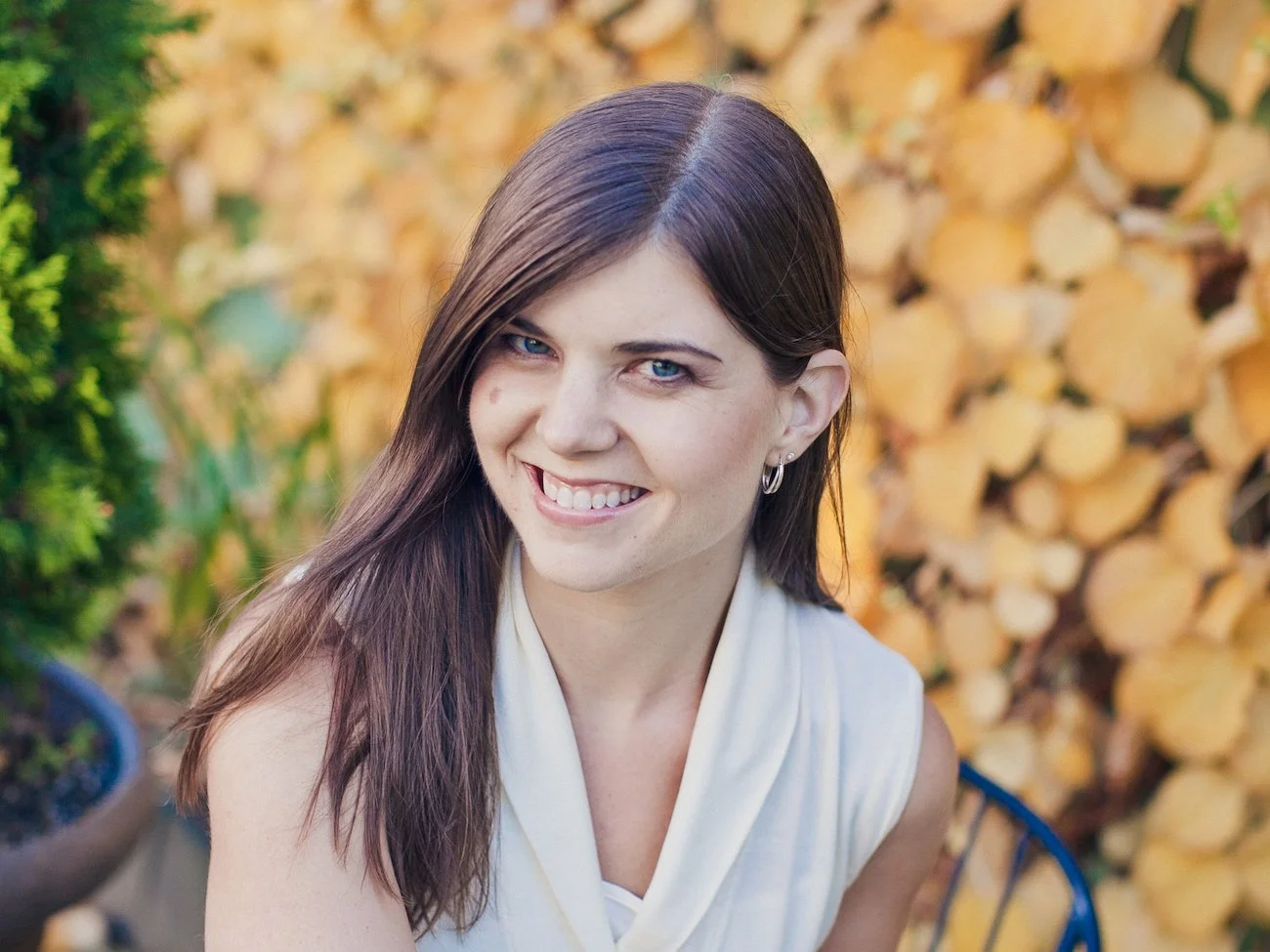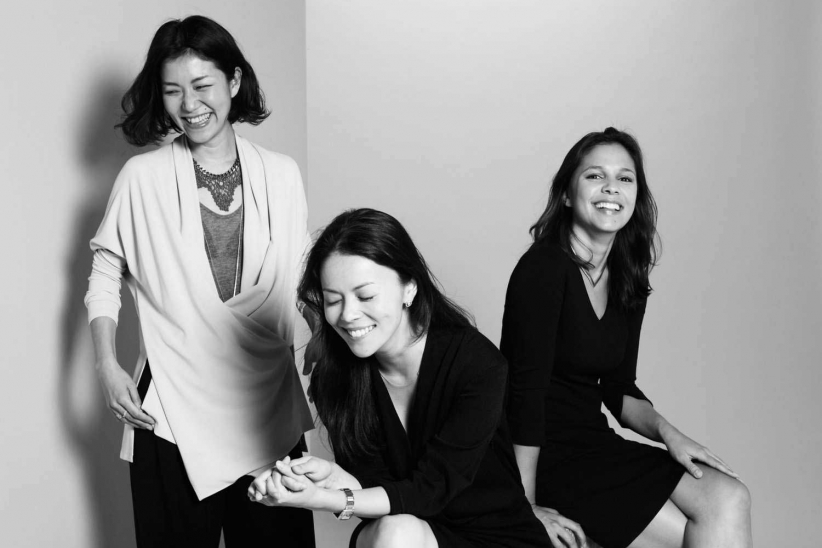Trailblazing Women: Paulina Sygulska, Co-founder GrantTree
"All in all, being an entrepreneur is an absolutely fascinating journey of personal and professional self-discover, incomparable with any other career path. I'll do my absolute very best to support others who are thinking of taking that journey. The more entrepreneurially-minded people we have in the world, the brighter the future".
Paulina is a serial entrepreneur, a philanthropist and a cofounder of GrantTree. In the last five years the team grew organically from 2 to 30, and raised over £30million for over 500 clients using government funding schemes such as R&D; tax credits and Innovate UK grants. GrantTree is also an open culture company which is pioneering concepts such as total transparency (including salaries), trust, power, non-hierarchical self-organisation, and freedom.
Visit her website www.granttree.co.uk and follow her on Twitter @Payah and @GrantTree
To Outearn Male Counterparts, Women Only Need to Become CEOs of Huge Corporations
The small sample size and the whopping $53 million pay package of Oracle co-CEO Safra Catz, the highest-paid CEO of them all, skewed the Equilar averages, notes Fortune, but female CEOs of the biggest companies also had a median income of $20 million, compared to a median of $14.5 million for all 100. Further, Equilar notes that of the eight, only two fell outside of the top 25. A pay expert tells the Post it's possible that "in order to get to the CEO role, maybe these women have to be twice as smart and twice as good, and therefore they earn more," but pay level at the biggest companies tends to be set on "market data and peer groups" and doesn't factor in gender. The seven women who, with Catz, make up the group:
In Honor of Mother's Day, Here are 7 Mompreneurs Who Founded Million-Dollar Businesses
entrepreneur.com - Raising kids is hard. Raising kids while founding and managing an eventual million-dollar business is harder. Despite every struggle life threw at them, these seven “mompreneurs” ran highly successful and innovative businesses without losing sight of their families.
Jacqueline Smith grew up knowing she’d someday own a cosmetics company. As a stay-at-home mom, she had a hard time escaping her kids for long enough to get a professional manicure, and at-home trials resulted in frequent interruptions and messy polish. From her struggle Kiesque Liquid Palisade was born -- the original liquid painter’s tape for nails! Kiesque is now an international cosmetics company whose products are sold at Sephora, BeautyBar.com, and many other fine retailers.
The process wasn’t perfect, though; like most startup owners, Jacqueline had to acquire funding for her idea, and she soon became pregnant with a third child. Now, Jacqueline has her busy schedule figured out, making room for her kids, work, and play: she gets up at 4 am for a bit of quiet work time, and after taking the kids to school, she moves to the office. Jacqueline and her team even leave the office around 3:15 pm to pick their children up from school, take them to afternoon extracurriculars, and enjoy family dinners. While things occasionally get a bit hectic, Jacqueline thanks her Apple Watch for reminding her of scheduled events and helping to keep life a little more sane.
From Forbes: 5 'Can't Miss' Conferences For Entrepreneurs In 2016
forbes.com - Where will entrepreneurs spend their networking and educational time in 2016? Today I’m following up on one of my most read columns of 2015 with an update to my list of recommended events in 2016 for entrepreneurs. I have selected these picks with an eye toward high networking and learning benefits for entrepreneurs who are looking for connections to top mentors, new funding and innovative ideas for PR.
This is an unofficial list I compiled on the basis of quality of attendees, avoidance of hard sell platforms, social responsibility missions, and positive results for those who’ve attended. I attended all but one of these events, the NextGen Summit, in 2015. As disclosure, I serve in an unpaid role as a faculty member for one of the events I’ve listed, CEO Space.
On that note, my choices are as follows:
1) CEO Space. Now in its 28th year, this event is billed as a business growth accelerator conference and touts itself as the world’s central catalyst for Cooperative Capitalism, which I have written about in this column before. It addresses entrepreneurs of all ages, including teens at its five annual week-long events in Lake Las Vegas, in Henderson, Nev.
Want to receive earlybird invitations to our global events, custom-tailored content we think you'll love, and get exclusive access to "The World Women Report"?
8 Female Venture Capitalists Who Want to Invest in Women
Want to receive earlybird invitations to our global events, custom-tailored content we think you'll love, and get exclusive access to "The World Women Report"?
3 Ways Financial Advisers Can Support Women's Desires to Invest Altruistically
Without the confidence in their investment decisions, women tend to avoid risk that might benefit them in the long-run. And by assuming that women are inherently risk-averse, the financial services industry promulgates behaviors that marginalize women investors and further erode their confidence: advisors tailor their language, recommendations and investing strategies for men.
Thus, 44 percent of women in the U.S. with significant personal income or investable assets do not have an advisor and nearly half of women with an advisor feel their advisor does not understand them. Not only do women and the industry lose in this equation but the world is also failing to benefit from the wealth women desire to contribute toward the social good. Like men, women seek performance from their investments. But, they also desire a greater basket of goods. Women want to fund entrepreneurs and social enterprises. They want to donate to charities that fight poverty and invest in organizations with diversity in leadership and that promote social well-being. Unfortunately, the less confident they are, the larger gap we see between desire and action.
Want to receive earlybird invitations to our global events, custom-tailored content we think you'll love, and get exclusive access to "The World Women Report"?
WEF is on the lookout for Africa's top five female innovators
venturesafrica.com - This May, Africa’s female innovators and entrepreneurs will be in the spotlight based on an opportunity to represent Africa at the 2016 World Economic Forum for Africa as part of the top five role models on the continent in the area of wealth generation and economic empowerment. These five female innovators will be selected from Africa’s “brightest and best” at the discretion of a panel of experts, and will then be invited to participate in the forum at Kigali, Rwanda.
The event will take place from the 11th to the 13th of next month, but the search is already on to determine the crop of female innovators and entrepreneurs who would shape Africa’s next generation. And because the World Economic Forum (WEF) is “committed to improving the state of the world,” application for the challenge is not limited to individuals occupying the technology space.
Fashion designers, farmers, artists, retailers, social entrepreneurs, and other such women who have set a standard with their innovative business models and have significantly improved their societies and the lives of the people around them can all register to be one of the top five making a difference at the forum this year. This is also in the spirit of championing inclusivity in the field of innovation which up until recently has been credited to professionals in the technology space.
Want to receive earlybird invitations to our global events, custom-tailored content we think you'll love, and get exclusive access to "The World Women Report"?
New Website Helps Advisers Connect With Women
Want to receive earlybird invitations to our global events, custom-tailored content we think you'll love, and get exclusive access to "The World Women Report"?
Treasury Picks Tubman for $20 Bill, Hamilton to Stay on $10
Symbols matter, and we're thrilled to see Tubman--a fierce champion of racial and gender equality--on the $20 bill, as well as the movement for women's suffrage in the United States on the $10 bill.
bloomberg.com - Abolitionist Harriet Tubman will appear on front of the $20 bill, replacing former President Andrew Jackson and becoming the first woman featured on U.S. paper currency in modern times, a Treasury official said, in a design overhaul that will leave Alexander Hamilton on the $10 note.
The decision is the latest chapter in a 10-month-old controversy that erupted after Treasury Secretary Jacob J. Lew tried to address gender imbalance on U.S. currency notes. He opened up the selection process to the public just as the current face on the $10 bill was enjoying a resurgence in popularity, and outrage ensued.
The move Lew is announcing Wednesday is intended as a way to thread the needle between women’s groups who have been advocating for gender diversity on U.S. currency and fans of Hamilton, including Lin-Manuel Miranda, the playwright and star of the hit Broadway musical about the nation’s first Treasury secretary. Miranda lobbied Lew to keep Hamilton on the $10 when he visited Washington last month.
Want to receive earlybird invitations to our global events, custom-tailored content we think you'll love, and get exclusive access to "The World Women Report"?
TiECon 2016: Leading entrepreneurship conference hits CA this May
Networking events and entrepreneurship conferences are a great way for women entrepreneurs to meet potential investors as well executives to join their leadership team. Many entrepreneurs look forward to certain conferences each year to find partners, clients and prospective board members. One of the more popular annual entrepreneurship conferences is TiECon, put together by the The Indus Entrepreneurs in Silicon Valley.
Scheduled for May 6 – 7, 2016 at the Santa Clara Convention Center in Santa Clara, California; and featuring more than 200 speakers and 100 exhibitors, TiECon 2016 is expected to draw more than 4,600 registrants at the two-day event. TiECon 2016 will offer multiple tracks on cutting edge technology topics; including Future of Cloud and IT, the Internet of Things, Data Economy, Trending Technologies and Social Entrepreneurship.
Many of the prominent speakers at this year’s conference are women—including Diane Greene, senior vice president of Google's cloud businesses; Lorie Wigle, general manager at Intel; and Varsha Rao, head of global operations at Airbnb.
Additionally, the conference will explore topics relevant to a startup; like talent acquisition and retention, funding options, and differentiating the company and products in a competitive environment. This year, TiE50, the coveted awards program for startups will screen more than 2,300 applications from 17 countries. The top 100 startups selected will attend TiECon 2016 and present before an audience.
For more information on the conference and to register, visit www.tiecon.org
Startup Lessons From a First-Time Entrepreneur Who Raised $25 Million
Leura Fine is hoping she can avoid the catastrophic and build a successful business on her first try. She already has the multimillion-dollar valuation down: her company Laurel & Wolf, an online platform that connects interior designers with consumers, has raised $25.5 million in VC funding and is reportedly valued at more than $100 million.
As Fine tells it, becoming a tech CEO happened almost by accident. Like so many entrepreneurial journeys, it started with a nagging frustration — namely, why interior design services remained exorbitantly expensive. Having worked at a big design studio in Los Angeles where “the average budget for a space was $3 million” and then at her own practice, Fine’s clients were safely in the so-called 1%. She liked the job, but wished the client pool was larger and more diverse (as did many of her designer friends, who were competing for jobs from this same, small pool). The Internet had leveled the barrier of entry to so many other fields — why not interior design?
Want to receive earlybird invitations to our global events, custom-tailored content we think you'll love, and get exclusive access to "The World Women Report"?
Female startups face uphill struggle against overwhelmingly male-led Venture Capital firms
According to Fortune, in a survey of US-based venture capital firms who raised at least one fund of $100 million or more since 2011, fewer than 6% of decision makers at US venture capital firms are women. That means that, across 282 firms and 906 decision makers, there were only 52 women capable of deciding the fate of thousands of startups. That’s 5.7%.
The difficulty here is that Silicon Valley’s overwhelming unrepresentative male culture runs the risk of becoming a self-fulfilling prophecy. What's more, with women now accounting for over half of the UK's young entrepreneurs, if the investors are all old men, and the teams they expect to see are younger men, then what hope has an all female team got of attracting the same level of funding?
Want to receive earlybird invitations to our global events, custom-tailored content we think you'll love, and get exclusive access to "The World Women Report"?
Yes Bank Gets $50-Mn IFC Loan for Women Entrepreneurs
This project is part of the Women Entrepreneurs Opportunity Facility (WEOF), the first-of-its-kind global facility dedicated to expanding access to capital for approximately 100,000 women entrepreneurs. It was launched by IFC, through its Banking on Women program, and Goldman Sachs’ 10,000 Women in 2014.
The $50 million Yes Bank loan aims to support women in all 29 states and 7 Union Territories in India.
On the successful completion of the transaction, Rana Kapoor, Managing Director and CEO, Yes Bank said, “this is a significant step towards strengthening the entrepreneurial ecosystem for women and will directly impact livelihoods. This facility demonstrates Yes Bank’s ability to partner with global institutions like IFC and Goldman Sachs 10,000 Women to expand access to finance to the unbanked and undeserved populations and achieve our vision of Responsible Banking. This facility will also complement various Government of India schemes for women entrepreneurs”.
Want to receive earlybird invitations to our global events, custom-tailored content we think you'll love, and get exclusive access to "The World Women Report"?
The Sexist Reason Millennial Women Aren't Investing
It's not the weight of student debt, like you might think. Only 13 percent of women say school loans keep them from investing their money. Rather, the Harris Poll survey, commissioned by investment app Stash, found that 76 percent millennial women think investing is confusing, while 60 percent think investing is an old white man's game—and gain, apparently. (A separate recent survey shows 10 percent of women believe Wall Street pays more attention to men than women.)
What's more, even if millennial women could move past the mental barriers keeping them from investing, they don't think they have the money to do so. Almost half—41 percent—of millennial women feel they don't have enough cash to invest in the stock market. And even more think they need beaucoup bucks to get started. According to the survey, 70 percent of millennial women think they need at least $100 to invest, while 38 percent think they need at least $1,000 to get started.
Want to receive earlybird invitations to our global events, custom-tailored content we think you'll love, and get exclusive access to "The World Women Report"?
Opportunity Knocking For Women Advisers
Amid a growing awareness of the “female market” for financial advice -- some data show women now controlling 51% of America’s personal wealth -- and the aftermath of some bias lawsuits, evidently more financial advisory firms are inviting women to be advisers as well as clients.
“It’s a big deal,” said Michelle Lynch, vice president of Raymond James Financial’s (RJF) Network for Women Advisors. She added, “All the firms have some initiative now around women.”
To be sure, female advisors are still comparatively few. Although women comprise more than half the population, they account for only 31% of financial advisors and 23% of certified financial planners (CFPs), according to a 2014 CFP Board report. And experts say that many women still aren’t even aware of the profession.
Reflecting The Marketplace
But these days, programs in colleges, professional groups and company recruitment aim to boost the ranks of women advisers. Indeed, at Prudential Advisers, “our goal is to reflect the marketplace,” said Catalina Camoscio, the firm’s vice president of recruiting and development. Reflecting the marketplace would eventually mean “50% of (our) advisers” would be women.
Want to receive earlybird invitations to our global events, custom-tailored content we think you'll love, and get exclusive access to "The World Women Report"?
This Women's Clothing Brand Is Made For Professional Women Who Hate To Shop
The fashion company MM.Lafleur, whose founders were recently interviewed in another post we shared, is bucking the stereotype and their business is thriving. Shopping is still wonderful for all of you who love it--but for women who are a little less enthusiastic about shopping, or who just want to streamline professional decision making, this is a welcome option.
fastcompany.com - "I'm so sick of the stereotype that all women are shopping-obsessed," Sarah LaFleur, the 32-year-old cofounder of the workwear brand MM.LaFleur, tells Fast Company.
After college, LaFleur spent several years working in management consulting and private equity, where she needed a rotation of crisp, smart work clothes. But she had neither the time nor the inclination to shop for them. In her few free moments, the last thing she wanted to do was browse for blazers online or at a boutique. "For some women, buying clothes is just not a priority for one reason or another, but it doesn't mean that they don't care about good style or looking elegant," she says.
LaFleur believed that there were many other female executives who felt like she did. So three years ago, she decided to do something radical. She started an online company called MM.LaFleur that challenged two deep-seated beliefs of the fashion industry: that women love the shopping experience, and want to buy trendy clothes.
She partnered with Miyako Nakamura, the former head designer at Zac Posen, to create a line of classic shift dresses, pencil skirts, and blouses in muted colors that would appeal to working women of all ages. Together, they spent hours ensuring that each outfit was tailored to fit a wide range of women's bodies. And with a third cofounder, Narie Foster, who headed up operations, they invented a system of selling these outfits to busy professional women without requiring them to spend any time shopping.
Want to receive earlybird invitations to our global events, custom-tailored content we think you'll love, and get exclusive access to "The World Women Report"?
The most common way to become a millionaire, according to someone who studied over 100 of them
Owning a business is the path to becoming a millionaire, according to the research of one author. Jaime Masters, who decided to survey more than 100 millionaires to see how they achieved the goal. Entrepreneurship, while risky, gives you more control over your fortune and destiny than other paths, Masters says. Click through to read more, and visit her website to read case studies from her interviews with self-made millionaires who make their fortunes on their own terms. businessinsider.com - Jaime Masters, author of "The Eventual Millionaire: How Anyone Can Be an Entrepreneur and Successfully Grow Their Startup," hoped to change her lifestyle when she was 24.
Masters, who wrote under the name "Jamie Tardy," was over $70,000 in debt and hated her job as a project manager for a company that installed computer equipment.
"I felt stuck, because I knew we were in debt and I couldn't quit my job because of the choices I had made," she writes.
Instead of giving up, Masters began to study and interview people who had already reached that goal.
Based on research from Thomas Stanley in "The Millionaire Next Door," and the many "first-generation rich" millionaires she interviewed, she come acrosscommonalities that led their successes. You can read some of her case studies on her website.
She writes that the one proven way to become a millionaire is not by investing, nor is it real estate. Instead, more millionaires have made their money by owning their own businesses than by any other means.
Read more here.
These Female Founders Put Health First to Thrive in Business
entrepreneur.com - If you were to believe the headlines about entrepreneurship, you’d think it was the sexiest job around. A job of passion and wealth. Pick something you love, find a venture capitalist, sell before you’re 30 and live the good life.
If only it were that easy. The reality of entrepreneurship is that in order to have this lifestyle, you have to ensure that you have the physical, mental and financial health -- and be invested in the long game.
When you ask an entrepreneur what a typical day looks like, one theme emerges: She is always working. There is no happy hour at 4 p.m. on a Friday afternoon, because she doesn’t "clock out" that early. At 4 p.m. on Friday, her day may only be getting started. Most likely, she's working into the evening and preparing to work over the weekend. Personal relationships can be strained if the non-entrepreneur in the relationship needs a lot of time from the entrepreneur. If friends and family aren't understanding of the limits on an entrepreneur's time, they likely won't be in that relationship for very long.
Want to receive earlybird invitations to our global events, custom-tailored content we think you'll love, and get exclusive access to "The World Women Report"?
These Founders Are Living Their Mission to Empower Women
HEATHER SERDEN: We met probably between the fifth and seventh grade. So Above the Glass was something I was working on, and I needed someone to help execute the editorial site. My background is in finance, and Danielle is a small-business owner with an editorial background.
DANIELLE YADEGAR: I was a fashion editor at Cosmopolitan. And then I started my own (jewelry) business.
HS: I wasn’t sitting there thinking I want to start a business. I actually met Katherine Power in 2011 when [Who What Wear was] thinking about taking on institutional investment. The COO at the time learned that I could do financial modeling, so she hired me to build a story with numbers to present to potential investors. There was a huge learning curve. I learned so much about digital businesses. And then I did the same thing with a few other businesses on a consulting basis and for my master’s thesis. I realized that there was a lot of uncertainty or fear around the business and financial aspects of starting up. I had the knowledge and the background to help these female founders. Then I had this experience. I was in the workplace and didn’t really believe sexism was real. I thought the playing field was level. But when you get older, employers start looking at you differently. They think, “Oh this person is on the mommy track.” And I was like, wait a minute, I need to go do my own thing. I know how to do it. There are a bunch of women who don’t know how to do it, so that’s going to be my business.
Want to receive earlybird invitations to our global events, custom-tailored content we think you'll love, and get exclusive access to "The World Women Report"?
Women's Wallstory: A Headhunter's Open Letter To Wall Street
Dear Wall Street:
You are notoriously known for being male dominated, cutthroat and a fast paced environment. In recent years, you have tried to show you mean business when it comes to more women representation throughout all facets of your organizations. You have implemented programs to include more women into your workforce with tremendous strides. You have created programs to support and retain female employees. As well as, recruit new ones. Especially, this month as we all celebrate women, there have been plenty of feature stories about your high ranking female employees. Even reentry programs for women, who stayed home to raise children and are ready to come back to work. All, great for Company branding purposes as your websites are populated showing women inclusion.
Want to receive earlybird invitations to our global events, custom-tailored content we think you'll love, and get exclusive access to "The World Women Report"?







































